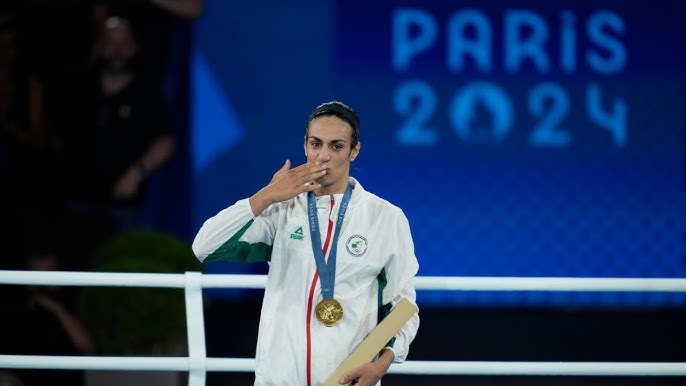Imane Khelif’s Gold Medal: Victory Amidst Governance Battles
Imane Khelif’s triumph in the women’s 66 kg boxing category at the Paris 2024 Olympics was a defining moment for Algerian sports. However, Khelif’s victory has become overshadowed by a controversial dispute between the International Boxing Association (IBA) and the International Olympic Committee (IOC). This dispute stems from the IOC’s decision to allow Khelif to compete at the Olympics despite the IBA barring her from participating in the 2023 IBA Women’s World Boxing Championships in New Delhi.
A Deepening Rift Between IBA and IOC
The IBA and IOC have been at odds for years, and the issue surrounding Khelif’s participation has only added fuel to the fire. The IBA was angered when the IOC took control of the boxing events for Paris 2024, sidelining the IBA’s role in organizing the competition. Khelif’s inclusion, despite the IBA’s ban on her, is seen by the IBA as a further infringement on its authority. The controversy surrounding her eligibility has become the latest flashpoint in this ongoing feud.
The Leaked Medical Report: Raising Questions on Eligibility
A leaked medical report concerning Khelif has added another layer of complexity to the dispute. While the full contents of the report remain largely undisclosed, it has prompted the IBA to question the IOC’s decision to permit Khelif to compete. The IBA argues that Khelif’s medical history should have been a factor in determining her eligibility, and they accuse the IOC of mishandling the situation. This development has intensified calls from the IBA for accountability from the IOC.
Umar Kremlev’s Demands for an Apology
Umar Kremlev, the president of the IBA, has publicly demanded an apology from IOC President Thomas Bach. Kremlev’s criticism centers on what he calls the “abuse” of female athletes in the sport, particularly in relation to how Khelif’s participation was handled. He has asked for Bach to take responsibility for the situation, which he believes has undermined the integrity of women’s boxing. This demand for an apology highlights the deep rift between the two organizations and their differing priorities when it comes to the treatment of athletes.
The Broader Impact on Women’s Boxing
Khelif’s gold medal victory should have been a moment of celebration for women’s boxing, but the ongoing dispute between the IBA and IOC has overshadowed her achievement. As women’s boxing continues to gain momentum and visibility, issues of governance and athlete welfare need to be addressed. The ongoing conflict risks diverting attention from the strides made by female athletes and jeopardizing their opportunities for future success. The focus must shift to ensuring that women in boxing are given equal opportunities and support, regardless of the political tensions between governing bodies.
The Future of Boxing at the Olympics
As the IBA and IOC continue their clash, the future of Olympic boxing remains uncertain. The controversy surrounding Khelif’s participation raises important questions about the governance of the sport and the role of international bodies in ensuring fair and ethical treatment for athletes. To secure the future of boxing in the Olympics, both the IBA and IOC must prioritize athlete well-being, transparency, and fair play. The Paris 2024 Games could mark a pivotal moment in the sport’s evolution, depending on how these disputes are resolved.


